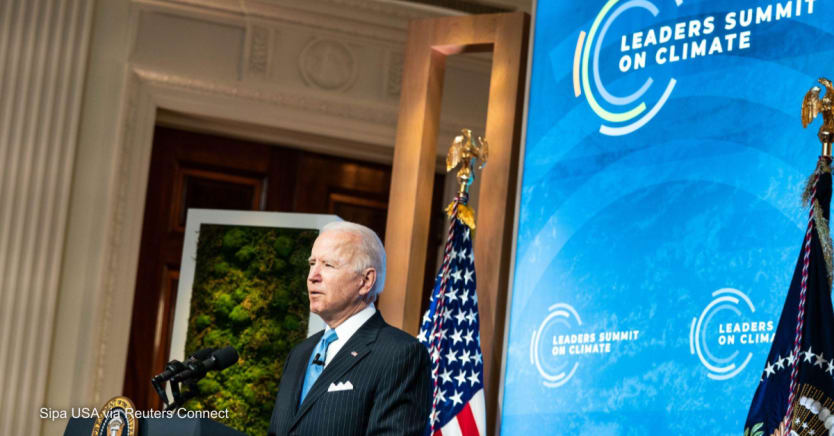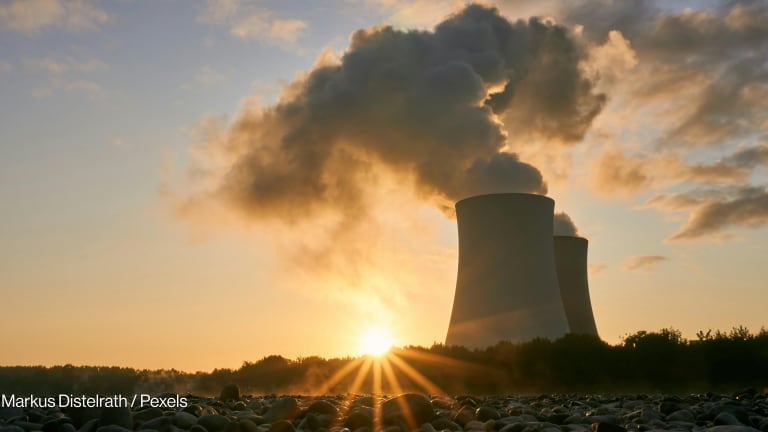
On the heels of President Joe Biden’s announcement that the U.S. will double its global climate finance by fiscal year 2024, administration officials faced a barrage of questions and some critiques at a congressional hearing Wednesday.
Lawmakers asked how the focus on climate helps serve middle-class Americans, how to hold China accountable to its own commitments, and how U.S. efforts will be coordinated and measured.
Rep. Hal Rogers, a Republican from Kentucky and the ranking member of the House Appropriations state and foreign operations subcommittee, was the loudest critic.
Sign up for Devex Invested
The weekly newsletter on how business, social enterprise, and development finance leaders are tackling global challenges.
“Today’s hearing allows us to discuss whether President Biden’s promise to put climate change at the center of American diplomacy, whether that’s consistent with his promise to carry out the foreign policy for the middle class,” he said.
The Biden administration’s initial budget request for fiscal year 2022 asks Congress to allocate $2.5 billion to climate-related programs, with about half of the funding going to the Green Climate Fund to support the global commitment to help low-income countries address climate change.
Biden committed to doubling climate finance from levels seen during former President Barack Obama’s administration and to tripling adaptation funding. But this will take a few years because climate finance “collapsed by 50%” under former President Donald Trump, and the Biden administration wants to ramp up funding in a way that is ambitious but achievable, said Leo Martinez-Diaz, senior adviser on climate change at the State Department, during the hearing.
Committing so much funding to climate at a time when foreign aid is “under great scrutiny from the American public” and American families are struggling is “irresponsible and misguided at best,” Rogers said, adding that he urges the administration to “reexamine the priorities they’ve put forward.”
But that doesn’t seem likely, and administration officials all described climate as an existential threat at Wednesday’s state and foreign operations subcommittee hearing.
“Climate is being dealt with alone, on a separate track. It is important to continue to have a complex relationship with China. We can’t solve the climate challenge without talking to the Chinese.”
— Leo Martinez-Diaz, senior adviser on climate change, State DepartmentThe U.S. international climate finance plan announced last month has five focus areas: “scaling up climate finance and enhancing its impact”; “mobilizing private sector finance”; “taking steps to end international official financing for carbon-intensive fossil fuel-based energy”; “making capital flows consistent with low-emissions, climate-resilient pathways”; and “defining, measuring, and reporting U.S. public climate finance.”
Climate mitigation and adaptation worldwide will require trillions of dollars in investments — more than any government can finance alone, said Jeffrey Haeni, acting director at the U.S. Agency for International Development’s Center for Environment, Energy, and Infrastructure.
“We need to mobilize funding from all sources — public and private, global and local — and guide those investments to the most effective solutions and to the most vulnerable communities,” he said during the hearing.
The U.S. International Development Finance Corp., which is named in Biden’s plan, has a key role to play in mobilizing private resources, said Jake Levine, the institution’s new chief climate officer, during the hearing. DFC has committed to increasing its share of climate-related projects to one-third by fiscal year 2023 and to having net-zero emissions by 2040. It has also committed to providing $50 million in technical assistance over the next five years to support climate- related projects.
Several lawmakers asked about China’s role in climate negotiations and financing. Rogers said he was concerned that China would attempt to use climate cooperation to gain concessions from the U.S. in other areas.
The administration is working with China in a “targeted, constructive manner,” but it continues to pressure the country on policy areas of disagreement and will not use trade concessions to advance climate interests, Martinez-Diaz said.
“Climate is being dealt with alone, on a separate track. It is important to continue to have a complex relationship with China. We can’t solve the climate challenge without talking to the Chinese,” he said.
Rep. Guy Reschenthaler, a Republican from Pennsylvania, said the U.S. should not believe China’s commitments on climate and questioned why the Biden administration is “buying that nonsense.”
“It seems Beijing is playing Biden like a fiddle,” he said.
Martinez-Diaz replied that the U.S. doesn’t “take what China tells us at face value” and pushes the country in every negotiation to share its plans and be accountable to its promises.
There were also several questions about maximizing the efficiency of funds and how the administration is coordinating to avoid duplication across agencies and global efforts.
The administration’s climate work is being organized through a “robust interagency process” run by the White House to make government institutions work in complementary ways toward the same goals, said Mathew Haarsager, deputy assistant secretary for international development finance and policy at the Treasury Department. The administration is now working to implement its climate finance plan, he said.
“Across the multilateral space, different tools do different things. The goal is to make sure they are complementary, not duplicative,” and that they demonstrate measurable results, Haarsager said, adding that this integrates with the bilateral work the U.S. is doing.








